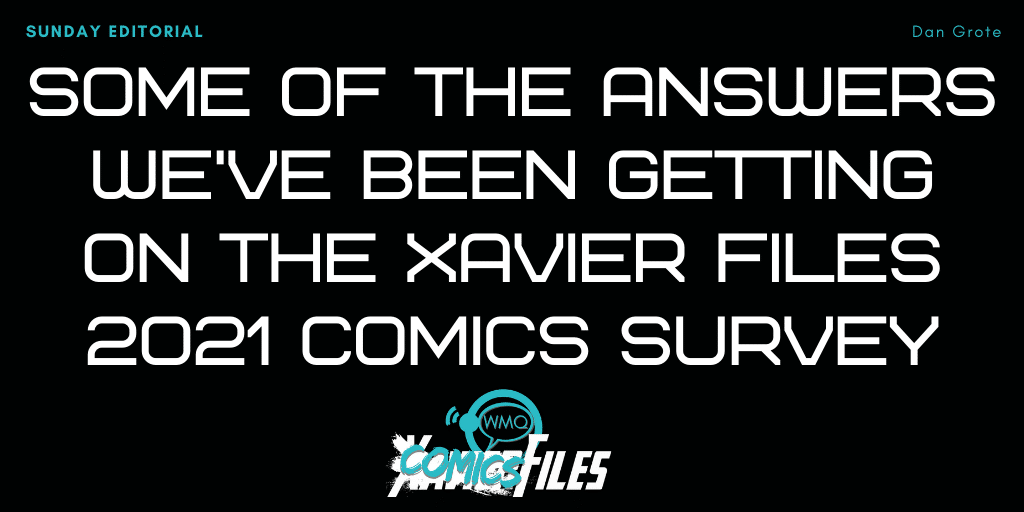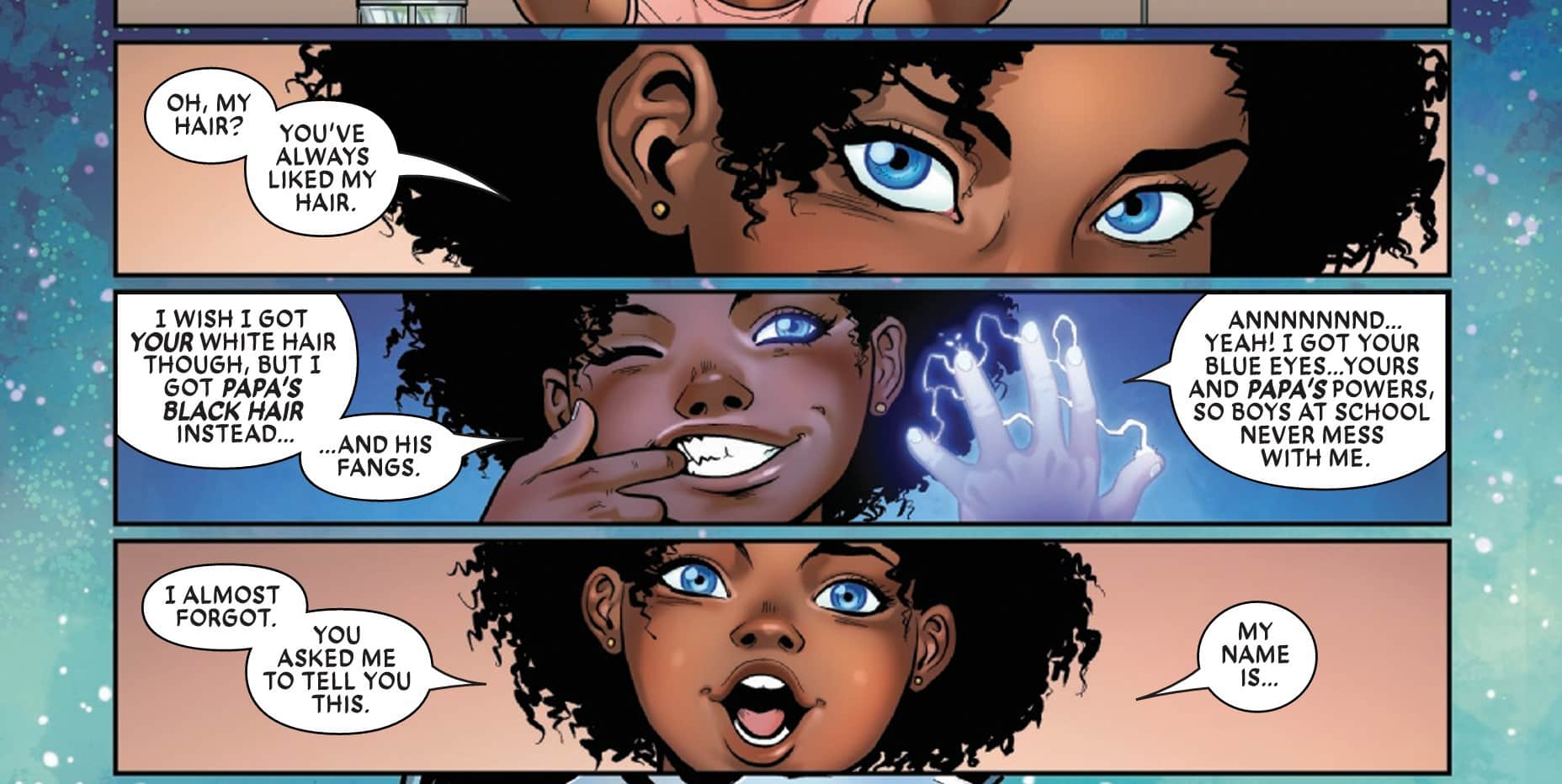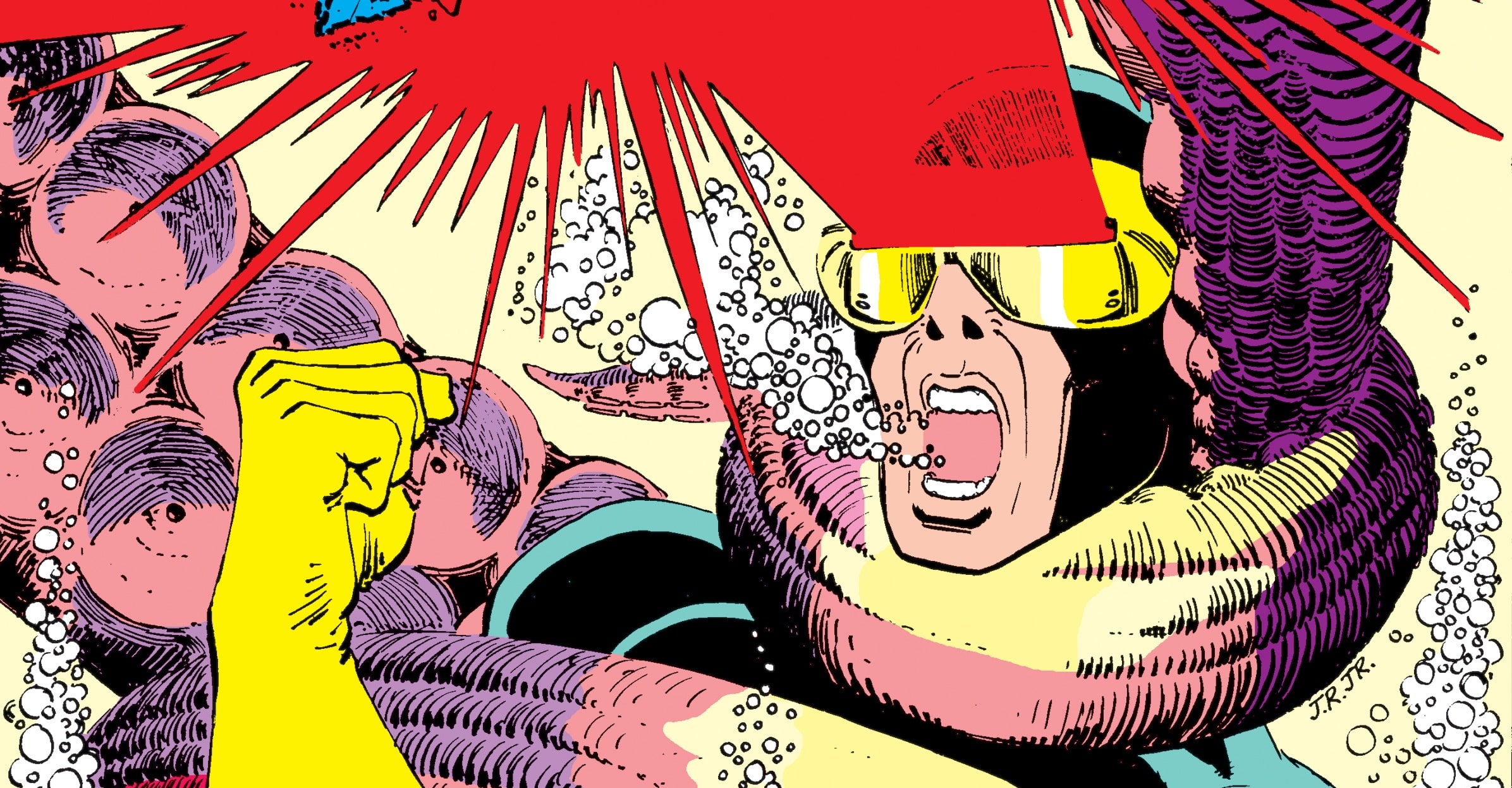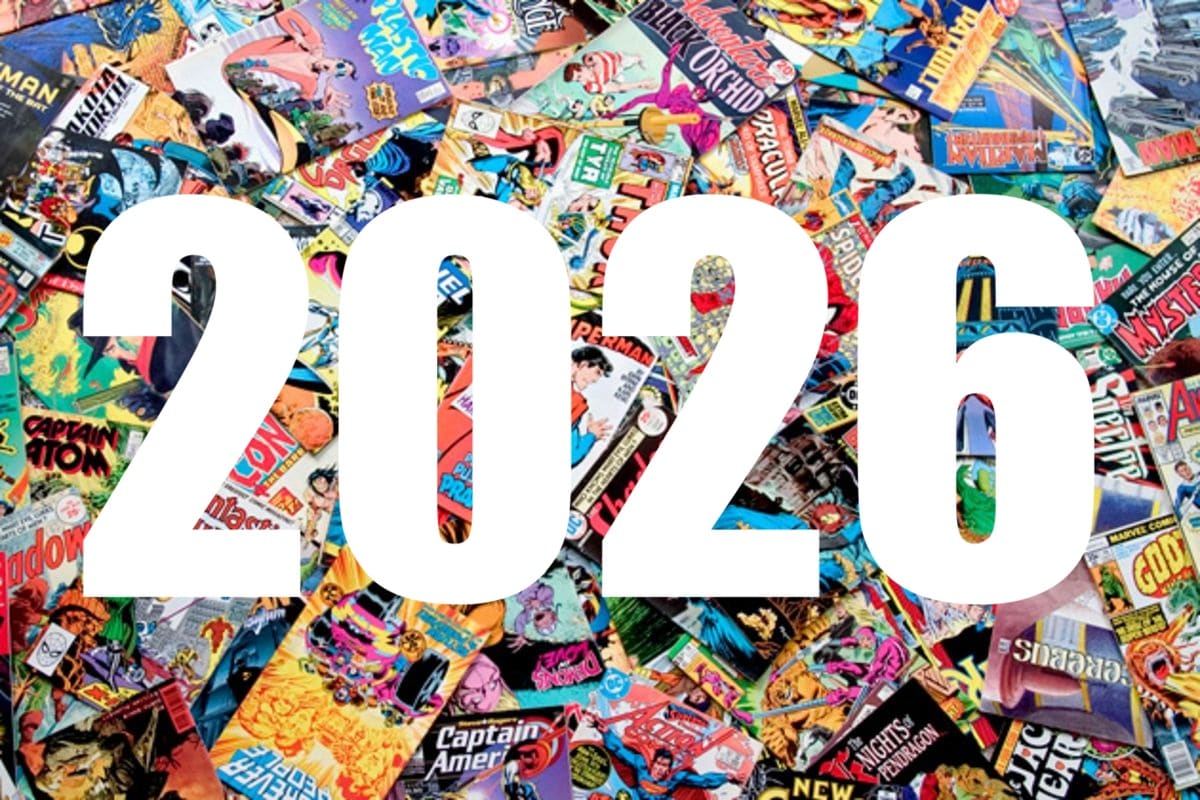Last week, we introduced the Xavier Files 2021 Comics Survey, in which we solicited the comics community for answers to this ONE question:
With everything that’s happened this year, what is one thing the comics industry needs to do to evolve in 2021?
Since then, we’ve received dozens of answers, from leaning into the youth and bookstore markets to continuing to experiment with digital distribution to expanding diversity both on and behind the page.
To steal a freeze from Guy Fieri, you might call them comics’ Triple D – Distribution, Digital, Diversity.
Or you might not. I don’t know you and your feelings on Guy Fieri.
We’re still collecting responses for use in a future project. You can weigh in here. But in the meantime, here are a few of the ones we’ve gotten. We’ll be posting them intermittently throughout the month.
Speaking as a school librarian & father of two, the industry really needs to keep growing the YA market. These YA books & OGNs have a big rate of circulation in my library and really capture my kids’ imagination. DC has put a surprisingly large amount of work into this, and Marvel looks like they’re ramping up.
Brent Corey, fan, @AHSLMC on Twitter
I’d love to see this expansion continue as kids growing up with Scholastic Book Fair offerings continue to seek exciting works as they enter middle and high school and beyond.
I want nothing more than to continue enjoying comics and spreading that love to my children and students for years to come. Embrace that youth market comics industry!
Honestly, we need to move away from the Diamond monopoly model. We’ve seen how much that system can affect the market poorly when something bad or unexpected happens. I’m not saying get rid of Diamond, I’m saying get rid of the monopoly. Sure, the change will be difficult, there’ll be kinks to work out, but plenty of businesses manage to deal with multiple suppliers with no problems, and comic shops will be able to work that out if more energy was put into making new systems and suppliers instead of defending a monopoly that is causing diminishing returns.
Joe Glass, writer, THE PRIDE, joeglasscomics.co.uk
As part of this, we need to get rid of this idea of comics being exclusive to comic shops. It’s just not the way to find the new generation of audience and protect the long-term future of the medium. Ask almost any comic creator or fan of a certain age, and I guarantee you most will say they bought their first comics anywhere but a comic store. Kids today, when they leave a major superhero movie excited by the characters and world, they aren’t being driven to comic shops and often don’t head there. Instead, we need to bring the comics TO them. Let’s see Marvel comics in Disney Stores, let’s see DC at the newsstand, Image in the supermarket, etc. Comic shops would still be able to survive in this kind of world, specialist stores are still vital and loved even when the product is accessible in other locations.
We can make it so a kid new to comics gets a taste at their local supermarket, and then finds a treasure trove in a comic store. It just takes work, but work that is worth it.
More Crowdfunding: Tenured and new creators have the vouching from the audience prior to release, which in turn helps with the longevity in their marketing campaigns to where there isn’t fatigue because new topics and opportunities surrounding the title can arise.
Melissa Meszaros, founder, Don’t Hide PR, donthidepr.com
Ironing Out Distribution Issues: Comics needs a new model that doesn’t put Diamond or Amazon at the core where creators are making less money off their own work when there is an increase in sales. On one end, royalties from larger distributors are consistent, but some publishers linked with distributors can be slow to pay or skim too much off the top, which is again problematic to not just the creator, but puts a monopoly on their work and how much they themselves have poured into it.
Community Focus: Creators work better in communities. Maintaining a positive space in the community is absolutely important to the success of everyone’s work. It helps motivate. It helps crowdfunding. It’s nice to share a space with folks who have similar interest and share the same passions, always.
Branch outside of itself. This includes money spent from publishers on advertising. As it is, the comic shops are really the only ones advertising, not the publishers. I know I may be in the minority of shop owners, but I also think comics on “newsstands” or at insert-big-box-store-name-here isn’t necessarily a bad thing. I don’t think specialty comic shops should be the only way to get a floppy or a GN. Many of us collectors now started by grabbing a comic from 7-11 or wherever your local spinner rack was. We should be there to cultivate the hobby, be the experts and get people collecting on a weekly basis.
Gregg Mester, co-owner, Level Up Entertainment, levelupentertainment.com
Rob Liefeld to return to take control of both Marvel and DC. For too long has the industry pandered to people who like feet, hate pouches and don’t do things to the extreme. We must bring back the EXTREME WAYS if we’re ever gonna survive.
Pouch Master, robliefeldcreations.com (Honestly, we’re pretty sure this is The Rob in disguise. They can’t all be winners, kids.)
If you’ve taken the survey already, thank you. If you haven’t, please consider doing so. We’re looking for a range of voices, from writers to artists to editors to PR reps to readers to comic shop owners to people with experience in the bookstore market. If you know anyone who fits those descriptions, consider sharing it with them.
Let’s figure out the future together, so 2021 is brighter than 2020.
Dan Grote is the editor and publisher of ComicsXF, having won the site by ritual combat. By day, he’s a newspaper editor, and by night, he’s … also an editor. He co-hosts The ComicsXF Interview Podcast with Matt Lazorwitz. He lives in New Jersey with his wife, two kids and two miniature dachshunds, and his third, fictional son, Peter Paul Winston Wisdom. Follow him @danielpgrote.bsky.social.






